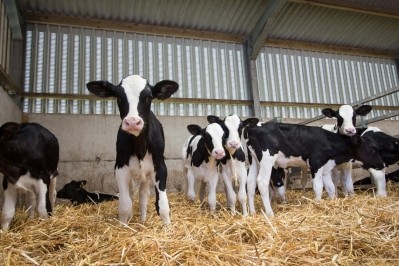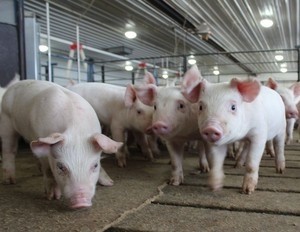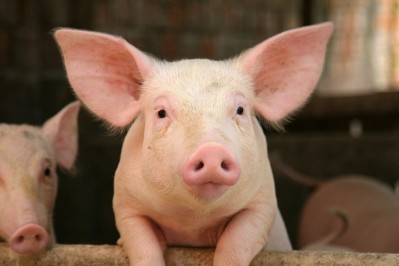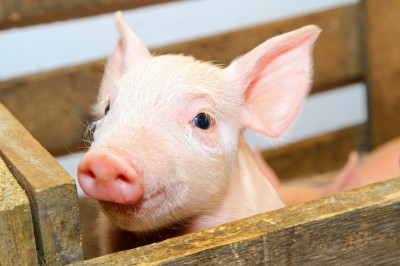Special Edition: Gut Health
Egg-based treatment may improve intestinal health and prevent diarrhea in piglets
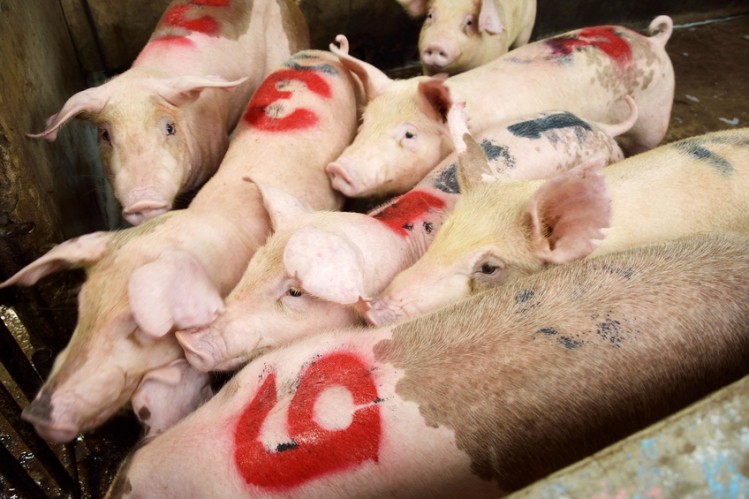
The team examined the use of protected IgY in the face of a disease challenge.
“The objective of the present study was to evaluate in vivo the protective efficacy of the nanocomoposite matrix for IgY when the immunoglobulin is used against enterotoxigenic Escherichia coli (ETEC) in challenged piglets,” they said.
The researchers found that piglets getting the feed supplement treatment with a protective coating had an improved response to the E. coli challenge.
“Treatment of infected piglets with protected IgY reduced significantly the severity of diarrhea,” said the researchers. “Non-protected IgY group show a lower recovery rate.”
Why protected IgY?
Egg yolk immunoglobulin creates passive immunity when translated from hen into the embryo in an egg yolk, said the researchers. The area is open for more exploration as IgY technology is low cost, highly effective and in-line with many countries’ regulations.
“IgY was previously studied against different intestinal pathogens and has shown characteristics that make it an efficient alternative [to] traditional treatments of some animal illness,” they noted
When fed the treatment is degraded by gastric conditions including low pH and pepsin, which makes reaching the small intestine a challenge, they said. However, any protection method has to allow the supplement to work when it reaches the lower intestine.
Several other coating methods have been explored including chitosan-alginate microcapsules, methacrylic acid copolymers, liposomes and polymeric microspheres and multiple emulsification, they said. In a past study, the group explored use of pH-sensitive hydrogels, which could be improved with the use of chitosan wrapped carbon nanotubes (CNT).
“The nanocomposites revealed a reduced swelling in acid pH, the incorporation and release of IgY were also improved,” said the researchers. “Whether hydrogel-CNT (H-CNT) composites could effectively protect IgY from inactivation in vivo in gastric conditions while is active in the lower intestine, remains unknown.”
Porcine neonatal diarrhea is a major cause of death and lost profit to swine producers, they said. IgY helps protect against infection and boost survival in neonatal and early-weaned pigs.
Trial details
Piglets were separated into one of five groups for the trial for a period of 5 days, said the researchers. Rectal swabs were taken at different points in the assay for bacterial analysis.
One group of piglets served as the control, another was given the supplement with no disease challenge, a third group was challenged and given no treatment, one group was both challenged and given the protected supplement and the fifth group was disease challenged and given a non-protected IgY supplement, they said. A subgroup of non-challenged, non-treated piglets was added to the diseased groups to see if they were infected by contact.
Piglets were challenged on day one and treated piglets received three supplements that day, and two doses on days 2 and 3, said the researchers. On day four the pigs were weighed, blood and duodenum, jejunum and ileum samples were taken and pigs were harvested.
Piglets were challenged with a strain of e.coli also used to generate an immunogen from hens, they added. Fecal matter was graded from normal (0) to liquid (3) and dehydration rate was noted from normal (0) to severe (3).
Results
Piglets that received neither treatment nor disease challenge had the best fecal scores, and piglets getting the IgY supplement had slightly improved weight gain over the non-treated group, said the researchers. Piglets that were disease challenged and given the protected supplement tended to have the most weight gain.
“The results suggests that IgY is exposed or liberated effectively in the lower intestine since the protected antibody acts faster than non-protected one, without delays which could be due to slow release from the nanocomposite matrix,” they said.
Piglets that faced disease challenge and were untreated all displayed diarrhea and had no recovery, they said. About 75% of piglets getting the unprotected supplement had diarrhea, but recovered.
Piglets in the contact subgroup for the untreated pigs also developed diarrhea and dehydration, said the researchers.
Both piglets in the contact subgroup for the non-protected treatment developed diarrhea, though one recovered after 48 hours, they said. Piglets getting the protected supplement did not display diarrhea even after disease challenge.
“The results suggest that IgY is protected by the nanocomposite matrix during gastric passage and is active as antibody in the gut, impeding the ETEC action,” said the researchers. “An increasing trend in weight gain was recorded in the groups treated with IgY (protected and non-protected).”
Cytology analysis and cell counts found no differences for both treated groups, they said. But, piglets that faced the disease challenge without treatment had elevated leucocyte counts and raised neutrophils.
“Sections of duodenum and jejunum-ileum of protected IgY treated groups showed no histological changes,” the researchers said. “The epithelial cells lining the sides of the villi were columnar, and their brush borders were intact. No structural or morphologic damage to the villous epithelium, submucosa, muscularis externa, or serosa were observed.”
The challenged and untreated group had mild epithelial lesions but crypts of Lieberkühn epithelium were intact, they said.
The supplement may offer a manner of controlling ETEC infection in piglets and spreading treatment in animal groups, said the researchers. “It has significant implications for passive immunization of animals and for avoiding the spread of enteric pathogens, with clear benefits at the sanitary and production level,” they added.
Source: Vaccine
Title: IgY against enterotoxigenic Escherichia coli administered by hydrogel-carbon nanotubes composites to prevent neonatal diarrhea in experimentally challenged piglets
DOI: 10.1016/j.vaccine.2016.05.004
Authors: F Alustiza, R Bellingeri, N Picco, C Motta, MC Grosso, CA Barbero, DF Acevedo, A Vivas
